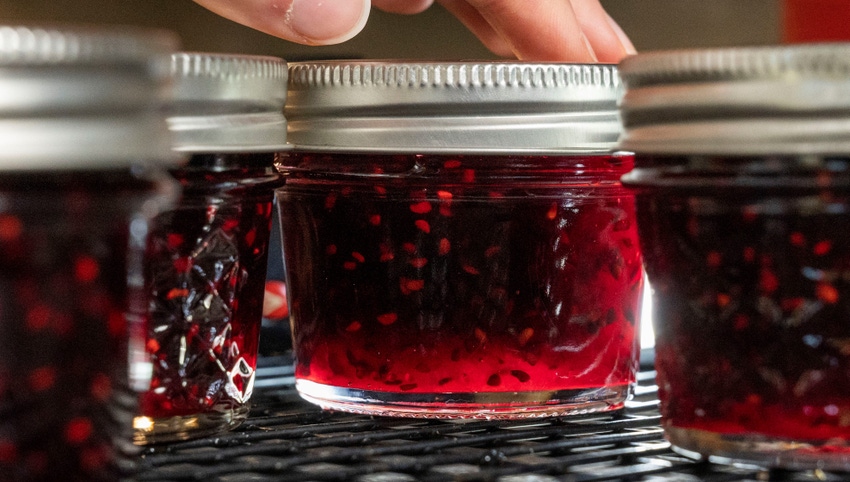
California’s small-scale fruit and vegetable processors and handlers will be getting new food safety online education and in-person workshops thanks to a grant from the National Institute of Food and Agriculture (NIFA) awarded to University of California, Davis community food safety specialist Erin DiCaprio and fellow collaborators.
“Developing and implementing required food-safety plans can be very challenging, especially for small food businesses, including processors and fresh fruit and vegetable wholesalers,” DiCaprio said. “Many of these producers have limited resources, some with only one or two full-time employees, and do not have the capacity to hire dedicated food quality assurance or food safety staff. Additionally, food safety training can be expensive and may require taking time off work, both of which many of these small businesses cannot afford.”
Value-added specialty products are a sector of the food industry popular among diverse small and medium-scale food businesses. As recently as 2012 in California, fruit and vegetable canning, pickling, and drying represented $2.22 billion in direct value added to the state’s economy. Today there are at least 186 licensed canneries and more than 8,300 registered food processors in the state.
“While many of these firms are large in size, small and medium-scale processors, who may or may not generate extremely high product volume, do represent a significant number of the licensed food facilities in California,” DiCaprio noted. “Recent data suggests that small food businesses prefer to have online training options that allow for more flexibility in scheduling and are lower in cost.”
The U.S. Food and Drug Administration has implemented new food safety rules that apply to on-farm production and food processing. “The Food Safety Modernization Act is now impacting our small-scale growers, food distributors, and food processors in California,” DiCaprio said. “These stakeholders need support in order to comply with the regulations.”
This grant will help address that need. DiCaprio is a UC Cooperative Extension assistant specialist in community food safety in the Department of Food Science and Technology. She is the lead investigator on the NIFA project, which also includes university scientists at Cal-Poly Pomona, Purdue, and the University of Wisconsin, La Crosse. The course and workshops will be offered in English and Spanish.
Tailored to small producers
“We want to build a low- to no-cost online course targeted to smaller scale processors and food distributors to help them navigate the murky waters of food safety regulation and to understand how their food quality assurance program can be leveraged to fulfill some of the food safety requirements,” DiCaprio said. “Small-scale food businesses are vital to local food systems and economies, and we want to support their success.”
The online course will consist of lectures on 12 different topics aimed to give processors a clear understanding of food safety, quality assurance, microbiological testing, environmental monitoring and food-safety regulations. Two in-person workshops will be developed, one focusing on food-safety plan development and sanitary plant and equipment design. The second will focus on setting up environmental monitoring plans and interpreting microbiological test results.
“We plan to develop California-specific content, though most of the online course will also be relevant to small processors in other states as well,” DiCaprio said. “We hope to roll-out the course in late summer or early fall 2021, with the in-person workshops to be held in 2022 and 2023.”
NIFA, part of the US. Department of Agriculture, funds programs that advance agricultural research throughout the United States. The $596,229 grant runs through August 2023.
Source: University of California, Davis, which is solely responsible for the information provided and is wholly owned by the source. Informa Business Media and all its subsidiaries are not responsible for any of the content contained in this information asset.
About the Author(s)
You May Also Like




